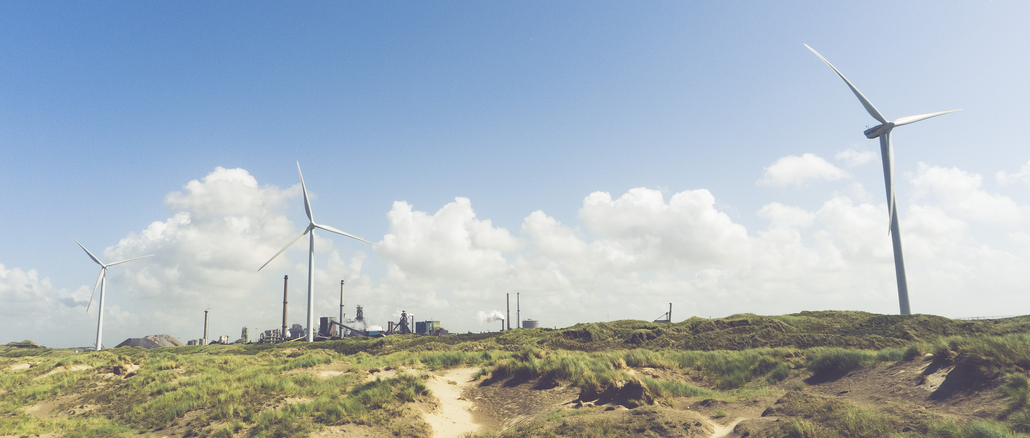
Tata Steel Nederland has launched Zeremis Carbon Lite, a steel with a CO2 “footprint” reduced by up to 100 percent. The lower CO2 intensity is based on the CO2 savings achieved by Tata Steel Nederland since 2018 and certified by the independent certification body DNV. With Zeremis Carbon Lite, the company is meeting the growing demand for low-CO2 steel, for example in consumer-related sectors such as the automotive, packaging and white goods industries, but also in the construction and mechanical engineering sectors.
The target of reducing CO2 emissions by 500 kilotons before Tata Steel Nederland starts up its first direct-reduced iron (DRI) plant1) should enable the company to supply at least 200 kilotons of CO2-neutral steel per year. Other green steel products will follow in the near future.
The market is ready for more green steel
“We are seeing increasing interest in more steel produced in an environmentally friendly way in the markets we serve. This is particularly the case with our consumer-facing customers with their own ambitious CO2 reduction targets, as the use of low-CO2 steel enables them to reduce their so-called Scope 3 emissions and thus make their product offering more sustainable,” says Hans van den Berg, CEO of Tata Steel Nederland. “We firmly believe that green steel is the future. By 2030, we will be producing steel in a different way, with less impact on our immediate environment and our neighbors. Thanks to our current CO2 savings, we can already offer our customers a significant amount of high-quality low-carbon steel. Therefore, the introduction of Zeremis Carbon Lite is an important step, as passing on our savings to our customers will help us accelerate our transformation into a more sustainable steel producer.”
Tata Steel has been working to reduce its CO2 emissions for many years. As a result, the steel mill in IJmuiden is already one of the most CO2-efficient in the world, the company says; the CO2 intensity of the steel produced in IJmuiden is around 7 percent below the European average and almost 20 percent below the global average. Nevertheless, Tata Steel is committed to further minimizing its environmental impact.
In order to reduce emissions from steel production on a large scale, Tata Steel has committed to switching to hydrogen-based green steelmaking. The company is aiming to reduce CO2 emissions by at least 30 percent by 2030 – when it will start up its first DRI plant – and to emit 75 percent less CO2 overall by 2035. At that time, the company will become a producer of large quantities of high-quality green steel. The ultimate goal is to produce all steel without CO2 emissions by 2050.
Independent certification body safeguards approach
Zeremis Carbon Lite’s first offering includes a 30 percent reduction in CO2 intensity compared to the European average for steel products such as hot- or cold-rolled coils. If customers have higher CO2 reduction targets, additional CO2 reduction allowances can be allocated to ensure that these targets, including CO2 neutral targets, are met.
DNV’s independent verification is intended to ensure that the methodology used by Tata Steel to calculate CO2 emission savings is viable and that CO2 emission savings are calculated and allocated in an appropriate manner. DNV has performed a limited assurance review in accordance with the International Standard on Assurance Engagements (ISAE) 3000. In addition, the WRI/WBCSD GHG Protocol for Project Accounting and Reporting Standard was used as part of the criteria against which DNV performed the assessment.
About Tata Steel Nederland
Tata Steel Nederland is one of Europe’s leading steel producers. The company supplies high-quality steel products to the most demanding markets, including construction, automotive, packaging and engineering.
Tata Steel Nederland works closely with its customers to develop new steel products that give them a competitive edge. Tata Steel Nederland has sites in the Netherlands, Belgium, Germany and other European countries and is part of the Indian Tata Steel Group, one of the world’s largest steel companies.
Tata Steel Nederland generated sales of €4.3 billion in the past fiscal year ending March 31, 2021. Tata Steel Nederland is working to produce carbon-free steel by 2050. To this end, steel production is being converted to hydrogen instead of coal
Web:
www.tatasteel.nl

